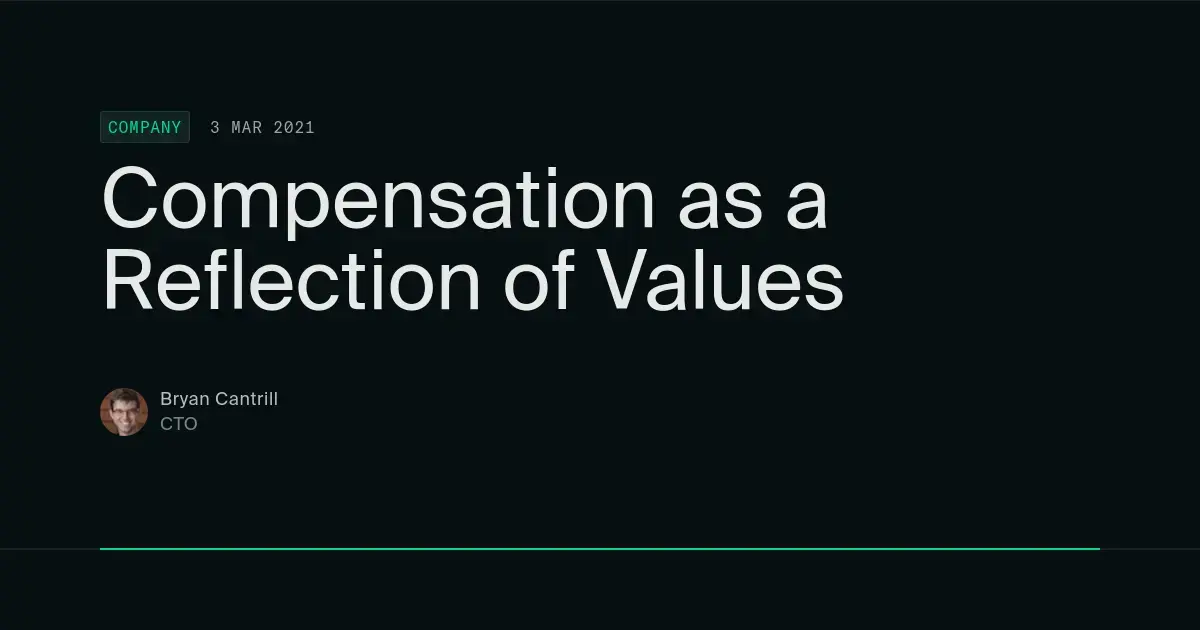Found via https://yorickpeterse.com/articles/what-it-was-like-working-for-gitlab/
I always considered the gitlab model, where the comp can be calculated via a public online tool, to be pretty progressive.
While this certainly doesn’t scale (as they admit) I think the sentiment is right.



TBH I’m usually a high performer, and transparent salaries would give me the honesty and security in my employer that would let me concentrate on the actual work instead of worrying about how am I getting fucked over with pay today.
I would not reduce my effort, maybe even increase it, because one seldom gets raises or promotions for effort anyway, but an honest employer is quite rare.
Likewise - I’m consistently rated a high performer, but my lack of awareness around compensation consistently has me questioning whether it’s worth my time to put those extra hours in - most of the time I decide it isn’t.
We recently had a situation where my employer changed compensation criteria mid-cycle and the reaction from my coworkers is summed up by 🤷♂️
To paraphrase the corporate God himself:
When you’re a Fortune 500 company, they let you do it. You can do anything. Grab 'em by the pussy.
Why put in extra hours? That’s not high-performance, it’s just doing more than one job, assuming you’re paid for a target number of hours.
Good point, I’m not against the transparent salary, my company lists a salary range, and knowing I’m at the top of my range for my position is rewarding.